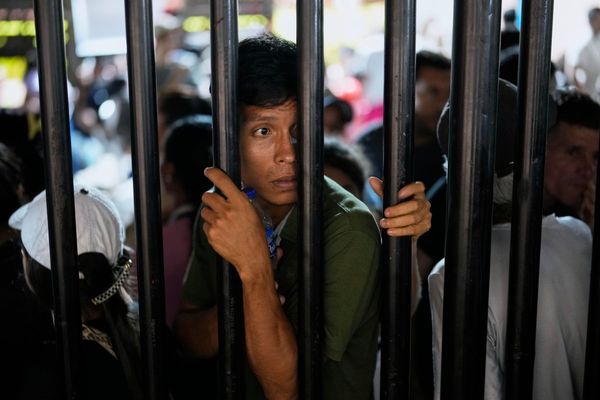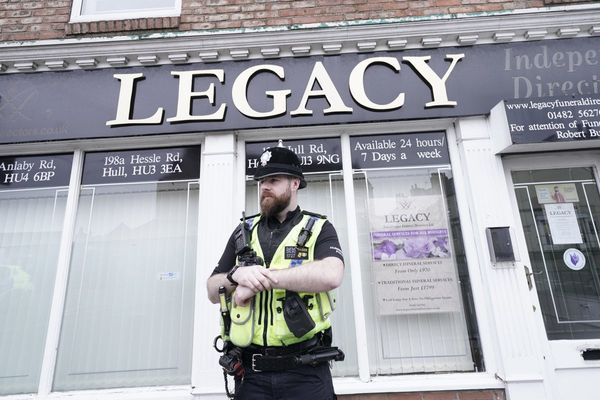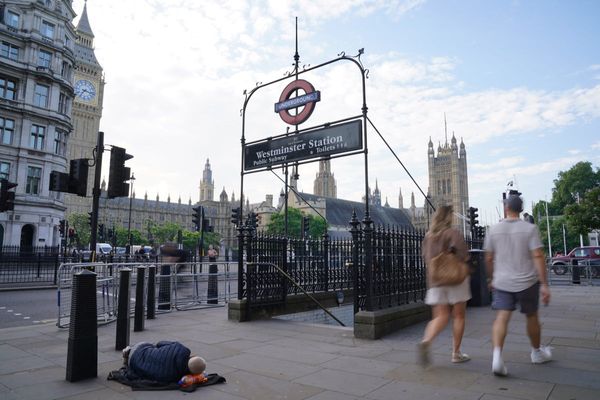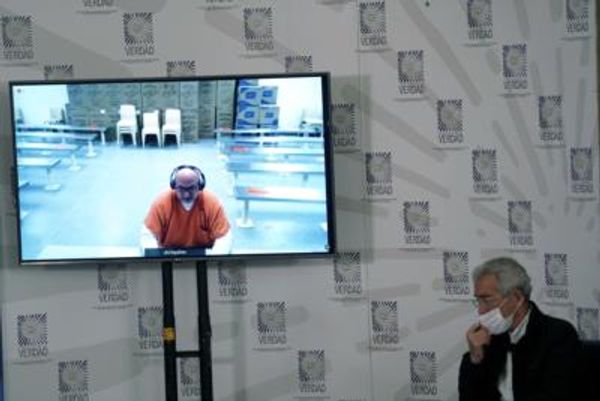PHILADELPHIA — When Maryna Bondar and her husband knew they would be moving from Ukraine to the United States, the culmination of a years-long immigration process, they never expected that something they didn’t pack would prove to be the heaviest to carry: a sense of guilt.
By pure accident of timing, the couple were admitted into this country Feb. 23 — the day before Russia invaded their homeland, starting a war that has killed thousands of Ukrainian troops and civilians and destroyed parts of major cities.
That turn of fate delivered the couple to safety in Northeast Philadelphia. And trapped their parents, family members, friends, and coworkers in a war zone.
“I have a bad emotion,” said Liubomyr Dykyi, Bondar’s husband.
Friends have called him from Ukraine, suspicious, accusing him of having had secret knowledge about the invasion. How else could he have so perfectly timed his departure?
It’s a crazy idea, Dykyi said, a conspiracy theory. But it doesn’t make him feel any better.
In the Philadelphia region, home to one of the nation’s largest Ukrainian communities, the same tortured feelings plague other arrivals whom the U.S. immigration system happened to land here just before the war broke out.
They had applied for admission as long as five years ago, often under what’s called the Lautenberg program. It provides a path to this country for historically persecuted religious minorities in former Soviet countries — including Bondar, 28, and her husband, Dykyi, 36, who are Baptist.
Romana Gordynsky, a resettlement manager at Nationalities Service Center in Philadelphia, said she has routinely seen new Ukrainian arrivals struggle. Americans call it “survivor’s guilt.” In Ukraine, the expression is slightly different, “to survive by accident.”
“I had four new people and all four were overloaded with emotions of guilt,” said Gordynsky, who came from Ukraine in 1994, not long after the collapse of the Soviet Union. “‘We were able to escape, but our kids are there, our parents are there. …’”
One woman was so overwhelmed that she needed medical care, repeating, “I want to go home, I want to go home. …”
Gordynsky told her — and tells others — that returning to a Ukraine under siege won’t help anyone. That she’ll work with them to try to bring their family members here. And that they can provide meaningful assistance by sending goods and supplies, and by working to raise awareness around the war.
Mykola Kukhar and his parents spent more than four years filing immigration applications and supporting documents. It seemed a departure date would never arrive. But it eventually did, by chance sending the three of them out of the country about seven hours before Russia invaded.
“I feel guilty that I’m not there, that I’m not helping my country,” said Kukhar, 26.
He learned his homeland was under attack when his plane landed in New York City. And, at the same time, that his wife was now in the middle of a war.
The couple married in October, deciding that Kukhar would immigrate and she would come later, rather than risk more delay by adding a new name to the application.
Kukhar’s family belongs to the Ukrainian Greek Catholic Church, which Stalin sought to destroy as far back as the 1940s by imprisoning, torturing and even killing bishops, priests, and laity. The church was not legally restored until after the fall of the Berlin Wall in 1989.
His parents decided to pursue immigration after Russia invaded and then annexed Crimea in 2014, feeling it was “dangerous to be Greek Catholic in Ukraine.”
The Lautenberg program offered a way out.
The program was created in 1990 — named for the late New Jersey senator and refugee champion Frank Lautenberg — to enable Jews in former Soviet states to join family members in this one. It expanded over time to include Baptists, Pentecostals, Seventh Day Adventists, Jehovah’s Witnesses, Ukrainian Greek Catholics, and members of the Ukrainian Autocephalous Orthodox Church.
Iran was added to the list of nations in 2004.
It typically takes two to three years from application to approval, and during the COVID-19 epidemic the wait has stretched to five years.
Kukhar spent his first two weeks in Philadelphia sickened by stress, exhaustion, and worry. He has considered the timing that flung him to safety and left others in danger, but reached no conclusion about the nature of fate. The U.S. immigration system moves as it moves.
He’s working as a plumber’s helper and sending every spare cent to Ukraine.
“If I am here,” Kukhar said, “what I can do the best is earn some money and help my people.”
Several thousand Ukrainians remain in the Lautenberg pipeline.
Bondar, a lawyer in Ukraine, and Dykyi, a communications specialist, never expected to leave their homeland. But after Russia invaded Crimea, they sensed shadows.
That spring, Dykyi was working in Luhansk, a main area of fighting and Russian separatism, handling campaign communications for incumbent President Petro Poroshenko.
He walked out of his rented apartment to see his own face staring back from a “Wanted” poster on the wall. Russians and separatists were kidnapping people. A friendly train master helped him leave the city.
A few weeks later, in the city of Sloviansk, four members of a Pentecostal church were abducted and killed by members of a paramilitary group called the Russian Orthodox Army.
In 2017 the couple filed a Lautenberg application. Five years later, in February 2022, hours after arriving in the United States, they were at dinner when their phones lit up with messages from Ukraine.
Sometimes, Bondar said, she’s drawn to thinking, “What if we had stayed?”
But mostly she tries to avoid that and concentrate on how the couple can help Ukraine. They rented a two-bedroom apartment so that, if a friend or family member can make it here, they have space to offer. They send money. And post news and updates on social media.
“This feeling in your heart and your head, feeling guilty,” Bondar said, “you need to push it aside. Not just cry.”







